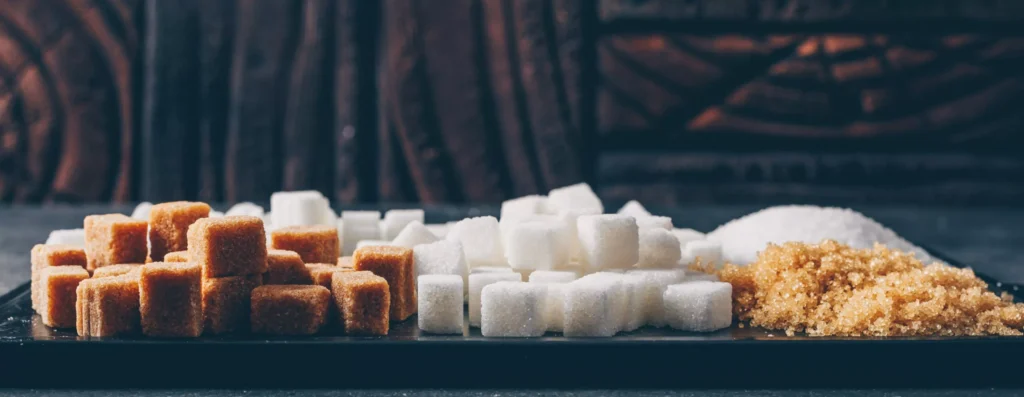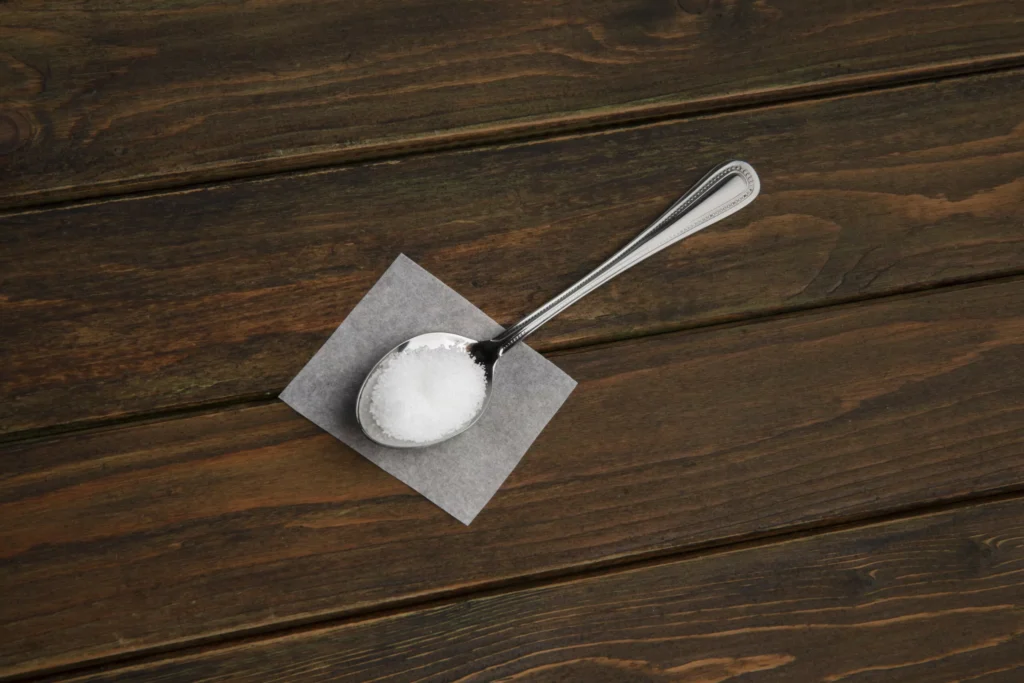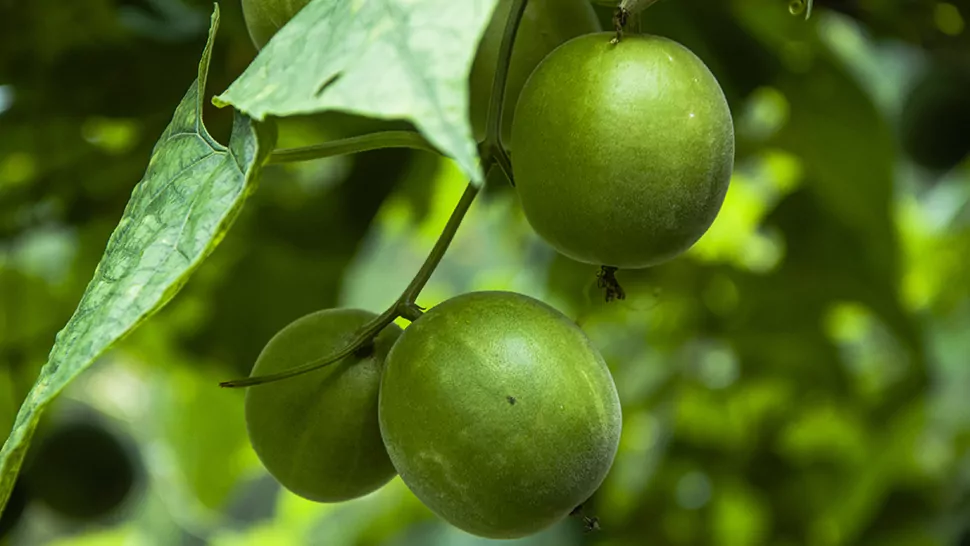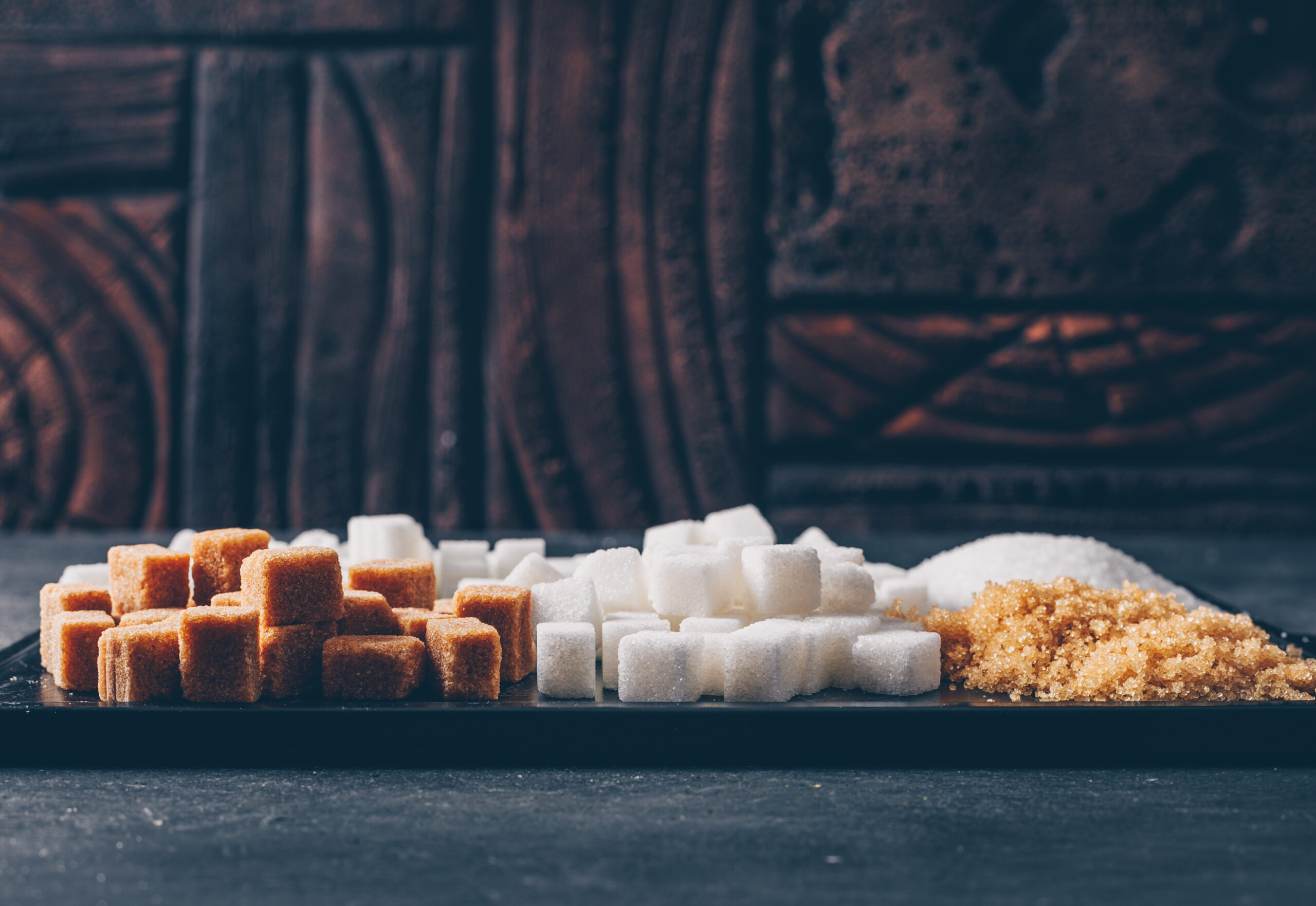
In your pursuit of a healthier lifestyle, you’re likely aiming to cut down on sugar. But finding natural, satisfying alternatives can be tough. That’s where new sweeteners like allulose, monk fruit, stevia, and erythritol come in.
They offer sweetness without the downsides of regular sugar. Let’s dive into each one to learn more about where they come from, what they’re like, and how they could benefit you.
Allulose: The Low-Calorie Sweet Sensation
Alright, let’s talk about allulose – also known as D-psicose. This sweet little gem is naturally found in small amounts in certain fruits like figs and raisins.
Now, despite its sugary taste, allulose is low-calorie and won’t send your blood sugar soaring. That’s great news if you’re watching your calorie and carb intake.

Sweetness: Allulose is about 70% as sweet as regular table sugar, so you get that sweetness you crave with fewer calories.
Texture: It behaves a lot like sugar, making it perfect for baking and cooking. You still get that lovely texture without piling on the calories.
Digestibility: Here’s where it gets interesting – unlike most sugars, your body doesn’t fully digest allulose. That means it doesn’t mess much with your blood sugar or insulin levels.
Weight Management: With its low-calorie profile, allulose is a smart choice if you’re trying to cut calories but still want sweetness in your life.
Blood Sugar Control: It’s a low-glycemic sweetener, meaning it won’t cause big spikes in blood sugar. That’s particularly helpful if you’re managing diabetes or just keeping an eye on your glucose levels.
Dental Health: Here’s a bonus – allulose won’t wreck your teeth like regular sugar can. So, it’s a win for your sweet tooth and your smile.
Monk Fruit: Nature’s Sweet Secret
Let’s chat about monk fruit, also known as luo han guo. Originating from southern China, this little green gourd has been treasured in traditional Chinese medicine for its sweetness for ages.
Nowadays, monk fruit extract is making waves for its super sweetness without the calorie punch of sugar.

Sweetness: Monk fruit extract is seriously sweet, like 100 to 250 times sweeter than sugar, thanks to mogrosides, its star sweetening components.
Zero Calories: Yep, you heard that right – zero calories! So, it’s a top pick if you’re looking to cut back on calories while still satisfying your sweet cravings.
Stability: It can handle the heat! Monk fruit extract won’t lose its sweetness or flavor when you use it in cooking or baking.
Diabetic-Friendly: Since monk fruit extract won’t spike your blood sugar, it’s a safe bet for folks with diabetes or anyone watching their carb intake.
Weight Management: With no calories to worry about, monk fruit extract lets you indulge in sweetness without worrying about your waistline.
Antioxidant Properties: There’s buzz that the mogrosides in monk fruit extract might have antioxidant powers, potentially offering some health perks beyond just sweetness.
Stevia: Nature’s Zero-Calorie Sweetener
Let’s talk about stevia – it’s a game-changer in the sweetener world. Made from the leaves of the Stevia rebaudiana plant from South America, it’s become super popular as a natural, zero-calorie sweetener.

Sweetness: Stevia is like a sweet powerhouse, packing in 200 to 400 times the sweetness of sugar. The magic comes from its steviol glycosides.
Zero Calories: No need to worry about calories here – stevia extract won’t add any to your plate. So, you can enjoy sweetness without the guilt trip.
Stability: It can handle the heat! Stevia extract won’t lose its sweetness when you use it in cooking, baking, or even in hot or cold drinks.
Blood Sugar Control: Stevia won’t mess with your blood sugar levels, making it a go-to sweetener for folks with diabetes or anyone keeping an eye on carbs.
Weight Management: With zilch calories, stevia lets you enjoy sweetness without worrying about your waistline.
Dental Health: Bonus points – stevia won’t wreck your teeth like sugar can, so it’s a win for your smile.
Erythritol: The Low-Calorie Sugar Alcohol
Erythritol is a sugar alcohol found naturally in certain fruits and fermented foods. With its sweet taste and low-calorie count, erythritol has gained popularity as a sugar substitute in various food products.

Sweetness: It’s about 70% as sweet as sugar, so you still get that sweet kick with fewer calories.
Low Calories: Erythritol is a champ when it comes to low-calorie sweetness. You’re looking at just 0.2 calories per gram, compared to the 4 calories per gram in regular sugar.
Digestibility: Your body absorbs erythritol but kicks it out unchanged, so it won’t mess much with your blood sugar or metabolism.
Dental Health: It won’t harm your pearly whites, so it’s a win for your teeth.
Digestive Tolerance: Unlike some other sugar alcohols, erythritol is gentle on your gut and won’t usually cause digestive issues in moderation.
Conclusion
So, to wrap things up, the rise of natural sugar swaps like allulose, monk fruit, stevia, and erythritol gives you plenty of options for sweetening up your food and drinks without the sugar downsides.
With their low-cal goodness and gentle touch on blood sugar and dental health, these sweeteners are a sweet deal for anyone wanting to cut back on sugar while still indulging those sweet cravings.

